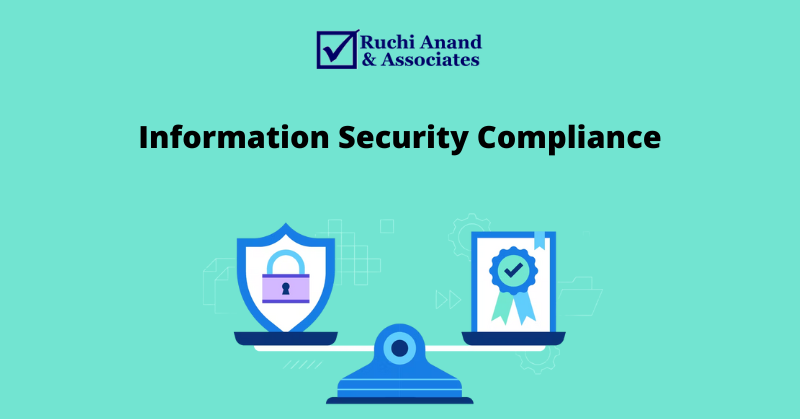Information Security Compliance
What’s Security Compliance?
The term”compliance” refers to complying with the rules and meeting standards. Security compliance is the creation of an application that has safeguards to ensure the integrity security, confidentiality, and accessibility of information stored or processed information.
There are numerous security compliance standards that have been established to safeguard data around the globe, for example, Payment Card Industry Data Security Standard, Health Insurance Portability and Accountability Act, General Data Protection Regulation, California Consumer Privacy Act and more.
What are the best practices for effective Security Compliance?
In order to establish an effective compliance structure, the following procedures can be implemented by the business:
- The preparation of an information security compliance plans A well-organized plan is vital to reach the goal of compliance. A compliance plan should contain the specifics of the list of relevant standards and risk assessment policies and the policies of implementation.
- Installation of up-to-date tools Tools that are used to monitor compliance must not be outdated since they can cause disturbance within the structure of compliance.
- Promoting awareness about standards of compliance Security team handles breaches and attacks on systems, but they may have no idea about the system for compliance. This gap has to be addressed by educating them on the regulations that apply to your business and the consequences for not adhering to the same.
- Constant observation The threat are always present in one form or different, and they may alter with changing circumstances. It is therefore crucial to analyze the present threats and those that could arise in the near future. Monitoring the risk factors continuously can aid in more effective decision-making.
What are the advantages of following regulations regarding Information Security Regulations?
Compliance comes with a price that companies may not take it into consideration as an advantage. It’s a real issue and companies could benefit by observing compliance in the following ways:
The corporate culture within the company creates an external corporate image. This can be achieved by paying attention to privacy and security issues. Therefore, making investments in security and privacy concerns should not be seen as an obligation in law, but rather an opportunity to enhance the image of the business.
- Security enhancement For businesses that work with or handle the data of customers it’s the most crucial asset. The regulations for information security establish an established set of standards that must be met for the protection of information.
- Beware of penalties Infractions to laws can result in harsh penalties and fines.
- protects the image of businesses Data breaches may harm a company’s image and undermine trust between the business and its clients. It could show as if the company isn’t trustworthy if it doesn’t make the necessary steps to safeguard your privacy as well as the security of customers.
The corporate culture within the company establishes an external corporate image. This can be achieved by placing emphasis on security and privacy issues. Therefore, investing in privacy and security concerns should not be seen as an obligation in law, but rather an opportunity to enhance the image of the business.
For more information contact us

